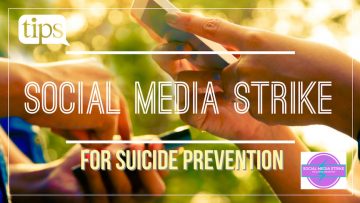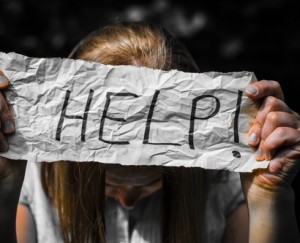How to Talk to Kids About Suicide
 Suicide is in the news, it’s in our communities, it’s on our minds. It is most likely also on the minds of our children who are no longer sheltered from the big bad adult world the way kids used to be. Gossip is overheard. The news is always on. Social media can shock. Kids talk to each other. We need to talk to them.
Suicide is in the news, it’s in our communities, it’s on our minds. It is most likely also on the minds of our children who are no longer sheltered from the big bad adult world the way kids used to be. Gossip is overheard. The news is always on. Social media can shock. Kids talk to each other. We need to talk to them.
Like any potentially sensitive topic, my advice is start small and be gentle. What you should say varies not only with age, but with maturity and the ability of the child to handle the information. We are seeing depression and anxiety in younger and younger kids, and even your elementary school kids may be confused by what they are hearing. If your child is in middle school and up, I think it is an important topic to raise. If your child is younger, use your discretion. Set time aside when you can put down your phones and focus on the conversation. Find a place where you think your child will be most comfortable. Before you launch into your speech, try to glean what they already know and answer the questions they have, not the ones you think they should have. Creating more stress and anxiety is not the goal. It is a fine line between giving them more information than they are ready to handle and giving them enough information to empower them. The taking of one’s own life is a difficult to comprehend, even for adults. Approach this topic with sensitivity and kindness.
The message needs to be one of empathy and hope.
My bullet points to my kids:
• The brain is an organ. It can get sick just like the heart or the liver or the stomach. Just as there are symptoms of a sick heart or a sick stomach, there are symptoms of a sick brain. A sick heart may give you chest pain and a sick stomach may make you nauseous. A sick brain will change your thinking. It is a symptom and not something easy to change.
• Depression and anxiety are medical problems. They are not choices.
• People who commit suicide deserve our sympathy, not our judgement.
• There is treatment, and most people who suffer can be helped with therapy and/or medication.
• If you are feeling down or stressed, it is so important to talk to me or another caring adult you feel comfortable with. It may be easier to talk to your friends. But, just as your friend couldn’t make a doctor’s appointment if you have stomach pain, they may not be able to give you as much help as you need.
• If you think your friend is feeling depressed, and especially if you are concerned about a suicide risk, get an adult involved quickly. You are not betraying their trust, you are potentially saving a life. If a friend confides in you, this is likely a cry for help. No matter how mature you are, this is more than you can handle, more than you should have to handle. Your friend’s wellbeing is not your responsibility, but it is vital they get the help they need quickly. Don’t keep quiet if you have concerns.
As I’m writing this post, I keep coming back to a song in Dear Evan Hansen. A mom is struggling to make sure her child knows everything will all be alright. Whether or not, we believe it, we want them to believe it. Open and honest is a first step toward O.K.
From So Big / So Small, Dear Evan Hansen:
Your mom is staying right here
No matter what, I’ll be here
When it all feels so big
’til it all feels so small

On Kids Growing Up: My Son is Letting Go of Me
























